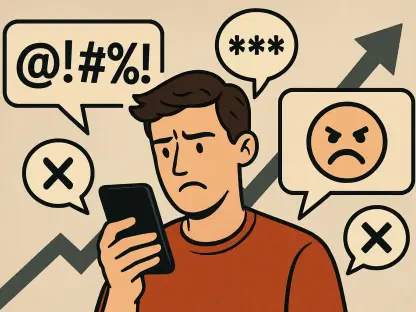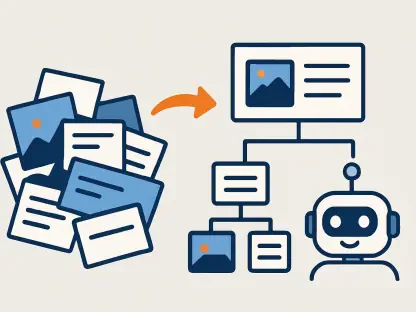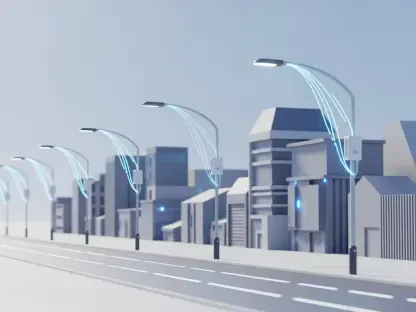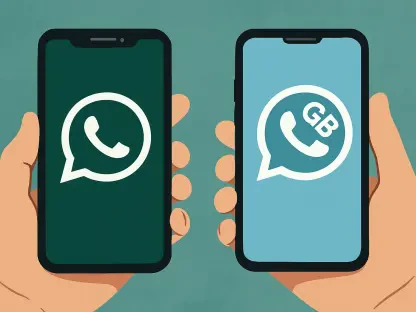Verizon Communications Inc. has announced a strategic partnership with Skylo Technologies, aiming to significantly enhance connectivity for its customers through an innovative satellite-based direct-to-device messaging service. This alliance underscores Verizon’s commitment to leveraging advanced technology to extend its service capabilities, particularly in emergency scenarios and remote areas. By merging satellite technology with its expansive cellular network, Verizon seeks to offer widespread and reliable connectivity, positioning itself at the forefront of technological advancement in telecommunications.
Revolutionizing Connectivity with Satellite Integration
Verizon’s collaboration with Skylo marks a pivotal development in the telecommunications sector. The integration of Skylo’s satellite technology with Verizon’s cellular network promises to deliver unprecedented connectivity. This dual-network synergy is set to transform how communication is maintained, especially in areas where traditional cellular coverage is limited or non-existent. The satellite technology integration is expected to offer reliable communication channels during emergencies. This ensures that even when terrestrial networks fail, users can maintain critical communication lines through satellite-enabled messaging. This capability is particularly crucial for first responders and emergency services, enabling faster response times and improved coordination.
The integration of satellite and cellular networks also broadens the scope of Verizon’s service offerings. Beyond emergency situations, this technology can enhance everyday connectivity for users in remote areas, outdoor enthusiasts, and professionals working in fields such as environmental monitoring and resource management. The seamless transition between cellular and satellite networks ensures continuous coverage, thus reducing communication blackouts and enabling real-time data transfer across diverse terrains. By providing this robust connectivity solution, Verizon not only enhances its service portfolio but also sets a new standard for reliability and accessibility in the telecom industry.
Enhancing Emergency Services
One of the standout features of this partnership is the enhanced emergency messaging and location-sharing capabilities. This service is designed to provide Verizon customers with robust and reliable communication options, irrespective of geographic constraints. In scenarios such as natural disasters where cell towers may be compromised, the satellite-based service ensures continuous connectivity. The ability to send and receive messages via satellite can be a lifesaver, helping first responders coordinate more effectively and ensuring that critical information is relayed without delay. This, in turn, can significantly improve the efficiency and speed of rescue operations, potentially saving lives in critical situations.
Verizon’s focus on improving emergency responses is amplified through this collaboration. By integrating satellite and cellular networks, Verizon can offer rapid deployment of communication services. This is particularly beneficial for disaster-hit areas, ensuring that first responders can communicate effectively and coordinate rescue operations more efficiently. The satellite-enabled services offer an added layer of security, ensuring that even when terrestrial networks fail, communication remains uninterrupted. This dual-layered communication approach underscores Verizon’s commitment to public safety and emergency preparedness, positioning the company as a leader in crisis communication solutions.
Moreover, the integration of this technology can support various public safety applications beyond immediate disaster response. For example, it can be used for wilderness search and rescue missions, remote medical emergencies, and large public events where network congestion might be an issue. The expanded capabilities offer a versatile and reliable communication solution that can adapt to different scenarios, making it an invaluable tool for both planned and unplanned events. By offering these advanced services, Verizon not only enhances its competitive edge but also reinforces its role as a critical infrastructure provider.
Expanding IoT Capabilities
Verizon has long been a leader in Internet of Things (IoT) technology, and this partnership with Skylo significantly boosts its capabilities. The satellite IoT integration allows for seamless transition between terrestrial and satellite networks, providing comprehensive geographic coverage for IoT devices. This is a game-changer, particularly for industries that operate in remote or challenging environments. The expanded IoT capabilities enable a multitude of applications across various sectors. For instance, in agriculture, satellite IoT can help monitor livestock, crops, soil conditions, and meteorological data in real-time. This not only improves efficiency but also aids in making informed decisions to boost productivity. Similarly, in transportation and logistics, real-time tracking and monitoring of vehicles and assets become more reliable, even in remote regions.
Furthermore, the satellite IoT capabilities will revolutionize industries such as environmental monitoring and maritime operations. In environmental monitoring, the ability to collect data from remote locations can provide invaluable insights into climate change, wildlife habitats, and natural resource management. Satellite IoT can facilitate continuous data collection and real-time analysis, enabling scientists and policymakers to make more informed decisions. In the maritime industry, satellite communication is essential for tracking vessels and ensuring the safety of maritime operations. The seamless transition between cellular and satellite networks ensures that vessels can be monitored continuously, regardless of their location. This not only improves operational efficiency but also enhances safety and regulatory compliance.
The integration of satellite technology into Verizon’s IoT services could also pave the way for new applications in emerging fields such as autonomous vehicles and smart cities. Autonomous vehicles require constant connectivity to navigate safely and efficiently; the expanded geographic coverage provided by satellite networks can ensure that these vehicles remain connected even in areas where cellular networks are weak or nonexistent. In smart cities, the use of satellite IoT can enhance various services, from traffic management to public safety, making urban areas more efficient and livable. This broad scope of applications highlights the transformative potential of Verizon’s partnership with Skylo in shaping the future of connectivity and IoT.
Key Industry Applications
The impact of Verizon’s enhanced connectivity extends across multiple industries. In the agricultural sector, the ability to monitor and manage resources remotely through satellite IoT can lead to higher efficiency and reduced operational costs. Farmers can receive real-time data on crop health, soil moisture levels, and weather conditions, enabling them to take proactive measures. This real-time data access can lead to optimized resource use, better crop yields, and more efficient farming practices. Additionally, livestock monitoring becomes easier and more effective, allowing farmers to keep track of animal health and location, even in expansive grazing areas. This level of precision and control is invaluable for modern agriculture, where efficiency and sustainability are paramount.
In the maritime industry, satellite communication is essential for tracking vessels and ensuring the safety of maritime operations. The seamless transition between cellular and satellite networks ensures that vessels can be monitored continuously, regardless of their location. This not only improves operational efficiency but also enhances safety and regulatory compliance. The ability to monitor ships in real-time can help in optimizing routes, reducing fuel consumption, and improving overall fleet management. Moreover, it can enhance safety by ensuring constant communication with vessels, thereby enabling timely response to emergencies and adverse conditions at sea. The integration of satellite technology into maritime operations thus offers significant advantages in terms of efficiency, safety, and environmental sustainability.
In addition to these sectors, the enhanced connectivity from satellite technology can significantly benefit industries such as transportation, logistics, mining, and energy. In transportation and logistics, real-time tracking and monitoring of vehicles and assets become more reliable, even in remote regions. This ensures better fleet management, optimized routes, and timely deliveries, which can have a significant positive impact on operational efficiency and customer satisfaction. In the mining and energy sectors, where operations often take place in remote and harsh environments, reliable communication is critical for safety and efficiency. Satellite-enabled IoT can provide accurate and real-time data on equipment status, environmental conditions, and personnel location, thereby enhancing operational control and safety measures.
Market Position and Future Prospects
This strategic partnership positions Verizon as a forefront leader in the integration of satellite and cellular technologies. By offering satellite-based messaging and enhanced IoT capabilities, Verizon is set to attract a broader customer base, especially those operating in remote or underserved areas. This collaboration also reinforces Verizon’s brand as an innovator in digital transformation. The ability to offer unique and reliable connectivity solutions gives Verizon a competitive edge in the telecommunications market. The company’s commitment to leveraging cutting-edge technology not only strengthens its market position but also attracts tech-savvy customers and businesses looking for robust and innovative communication solutions.
Verizon’s diverse pricing options for wireless and home broadband plans have already led to substantial customer additions. By continually deploying the latest 4G LTE Advanced technologies, Verizon ensures faster data speeds and higher capacity for its users. This disciplined approach to technological investment and customer-centric planning enhances Verizon’s market position, setting the stage for sustained growth. The integration of satellite technology further solidifies Verizon’s reputation for reliability and innovation, likely leading to increased customer loyalty and market share. Additionally, the enhanced capabilities in emergency communication and IoT applications open up new revenue streams and business opportunities, contributing to Verizon’s long-term growth and profitability.
The partnership with Skylo Technologies is also expected to have broader market implications. As the first global mobile carrier to offer supplemental smartphone connectivity via Skylo’s satellite network, Verizon sets a precedent for other telecommunications companies. This move highlights the importance of integrating satellite technology into traditional telecom services to enhance connectivity and ensure network resilience. As other companies follow suit, the industry as a whole may see a shift towards more robust and versatile communication solutions. This trend could drive further innovation and technological advancements, ultimately benefiting consumers and businesses with more reliable and comprehensive connectivity options.
Broader Implications for Connectivity
Verizon Communications Inc. has revealed a new strategic partnership with Skylo Technologies. This collaboration aims to greatly enhance connectivity for Verizon’s customers through a groundbreaking satellite-based direct-to-device messaging service. The partnership highlights Verizon’s dedication to utilizing state-of-the-art technology to broaden its service offerings, especially in emergency situations and remote locations where traditional connectivity is often lacking.
By integrating satellite technology with its extensive cellular network, Verizon strives to provide widespread, dependable connectivity. This initiative positions Verizon as a leader in technological innovation within the telecommunications sector. The move is particularly significant in ensuring that users can maintain communication during critical moments, such as natural disasters or in areas where conventional cell service is unavailable.
As Verizon continues to push the boundaries of what’s possible in telecom, this partnership with Skylo Technologies serves as a testament to its forward-thinking approach. It’s not just about offering traditional cellular service anymore; it’s about merging different technologies to ensure that no matter where you are, you can stay connected. This forward-looking strategy underscores Verizon’s commitment to leading the way in technological advancements, reinforcing its reputation as an innovator in the industry.









